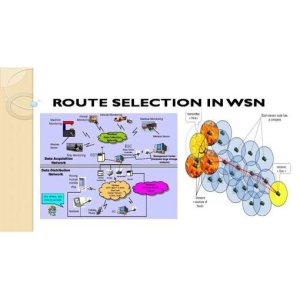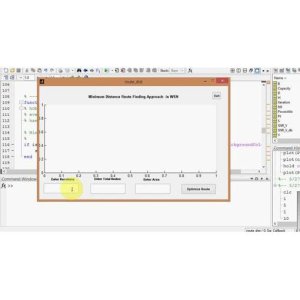Optimizing PID Controller Parameters in AVR Systems through GOA-Fuzzy Logic Integration
Problem Definition
The existing literature on tuning controller parameters for an AVR system has highlighted the use of the Grey Wolf Optimization Algorithm (GOA) to enhance the transient response. Although this approach has been considered efficient, a key limitation has been identified in the generation of constant PID controller values (Kp, Ki, Kd) at each iteration based on varying input signals. This lack of dynamic adjustment potentially hinders the system's efficiency and performance. Therefore, there is a pressing need to develop a method that allows for the dynamic variation of output values in response to changing input signals. By addressing this limitation, it is possible to create a more adaptive and responsive system that can better meet the dynamic requirements of an AVR system.
Objective
The objective is to develop a method that allows for the dynamic variation of output values in response to changing input signals for an AVR system. This method aims to improve the efficiency and performance of the system by integrating the Grey Wolf Optimization Algorithm (GOA) with a fuzzy logic-based system. By combining these two approaches, the goal is to create a more adaptive and responsive system that can better meet the dynamic requirements of an AVR system.
Proposed Work
In the above section, the various approaches proposed in literature for tuning of controller parameters are reviewed. As mentioned, one of the conventional works involves utilizing GOA to optimize PID controller parameters in an AVR system. However, the static output values generated by the GOA approach for varying input signals may not result in an efficient system. The proposed work aims to address this limitation by integrating GOA with a fuzzy logic-based system. The fuzzy logic approach is chosen for its ability to generate dynamic output values for varying input signals, thereby overcoming the inefficiencies of the previous GOA-based approach.
By combining the strengths of both methods, the proposed system can achieve a more efficient and flexible PID controller tuning process for the AVR system.
Application Area for Industry
This project can be utilized in various industrial sectors such as manufacturing, energy, automotive, and process control industries. The proposed solution of integrating fuzzy logic with the grasshopper optimization algorithm addresses the challenge of generating dynamic output values for PID controller parameters in response to varying input signals. In manufacturing industries, where precise control of machines is crucial, the dynamic tuning of controller parameters can lead to improved efficiency and productivity. In the energy sector, where stability and reliability are key factors, the flexibility of the system can enhance grid performance. Additionally, in automotive and process control industries, the ability to adapt to changing operating conditions can result in smoother operations and reduced downtime.
Overall, implementing these solutions can bring benefits such as increased efficiency, improved performance, and better system flexibility across diverse industrial domains.
Application Area for Academics
The proposed project can significantly enrich academic research, education, and training in the field of control systems and optimization. By integrating fuzzy logic with the grasshopper optimization algorithm (GOA) to tune PID controllers, the project offers a novel approach to improving the transient response of systems. This innovative method can provide researchers, MTech students, and PhD scholars with valuable insights into advanced control techniques and optimization algorithms.
The relevance of this project lies in its potential applications for enhancing research methods, simulations, and data analysis within educational settings. Researchers can leverage the code and literature generated by this project to explore new avenues in control system design and optimization.
MTech students can gain hands-on experience in implementing cutting-edge algorithms for controller tuning, while PhD scholars can delve deeper into theoretical concepts and performance analysis.
The interdisciplinary nature of this project makes it applicable to a wide range of technology and research domains, including automation, robotics, and mechatronics. The fusion of fuzzy logic with GOA opens up possibilities for developing intelligent control systems that can adapt to varying input conditions in real-time. By using this approach, researchers can explore the potential of incorporating fuzzy logic-based systems into traditional optimization algorithms for improved system performance.
In conclusion, the proposed project offers a valuable resource for advancing academic research, education, and training in the field of control systems and optimization.
Its innovative approach to tuning PID controllers with fuzzy logic and GOA holds great promise for enhancing system efficiency and flexibility. Researchers and students can leverage the findings of this project to explore new research methodologies and innovative solutions in the field of control systems.
Reference for future scope:
Future research can further explore the integration of different optimization algorithms with fuzzy logic to enhance system performance. Additionally, the application of the proposed approach to real-world systems and practical implementations can provide valuable insights into its effectiveness and scalability. Further studies can also focus on incorporating machine learning techniques and adaptive control strategies for developing robust and adaptive control systems.
Algorithms Used
The proposed work involves the integration of the Grasshopper Optimization Algorithm (GOA) with a fuzzy logic based system to tune the PID controller. The fuzzy logic approach is utilized to dynamically generate the proportional (Kp), integral (Ki), and derivative (Kd) values of the PID controller based on varying input values. By combining the capabilities of GOA and fuzzy logic, the PID controller can be fine-tuned more effectively. The system works by allowing both approaches to tune the PID controller independently and then fusing the best output values from each method. This results in a more efficient and flexible system for achieving the project's objectives.
Keywords
SEO-optimized keywords: PID Controller, Automatic Voltage Regulator, GOA tuning, Parameter Optimization, Fuzzy Logic, Hybrid Control System, Multi-Objective Optimization, Overshoot, Rising Time, Settling Time, Performance Enhancement, Stability Improvement, Control System Design, Control System Tuning, Control System Optimization, GOA-based PID Tuning, Fuzzy-PID Control, AVR System Performance, Control System Stability, Optimization Algorithms, GOA in PID Control, Fuzzy Logic in Control Systems, PID Control Tuning
SEO Tags
SEO Tags: Proportional-Integral-Derivative (PID) Controller, Automatic Voltage Regulator (AVR) System, Grasshopper Optimization Algorithm (GOA), Parameter Optimization, Fuzzy Logic, Hybrid Control System, Multi-Objective Optimization, Overshoot, Rising Time, Settling Time, Performance Enhancement, Stability Improvement, Control System Design, Control System Tuning, Control System Optimization, GOA-based PID Tuning, Fuzzy-PID Control, AVR System Performance, Control System Stability, Optimization Algorithms, GOA in PID Control, Fuzzy Logic in Control Systems, PID Control Tuning
| Shipping Cost |
|
No reviews found!


















































No comments found for this product. Be the first to comment!